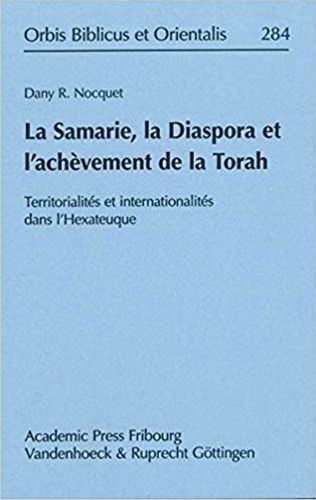Readings Newsletter
Become a Readings Member to make your shopping experience even easier.
Sign in or sign up for free!
You’re not far away from qualifying for FREE standard shipping within Australia
You’ve qualified for FREE standard shipping within Australia
The cart is loading…






This book offers an inquiry into the concepts and representations of territoriality beyond Judah and the relations of the people of Israel with neighbouring peoples. References to Shechem, Bethel, regions beyond the Jordan river, Edom, Philistia and Egypt are closely scrutinized. The author’s findings point to largely positive representations of these territories and their inhabitants from the books of Genesis through Joshua. According to Nocquet, the xenophile perspective and recognition of other peoples and neighbouring regions are related to Yahwist communities in Samaria and the diaspora of the late Persian and early Hellenistic periods. Taking into account archaeological data, most notably the presence of a late-5th-century BCE Yahweh temple on Mount Garizim, the author evaluates the literary and historical consequences of his exegetical findings for the concepts of promised land and election, and for the final redaction of the Torah.
$9.00 standard shipping within Australia
FREE standard shipping within Australia for orders over $100.00
Express & International shipping calculated at checkout
This book offers an inquiry into the concepts and representations of territoriality beyond Judah and the relations of the people of Israel with neighbouring peoples. References to Shechem, Bethel, regions beyond the Jordan river, Edom, Philistia and Egypt are closely scrutinized. The author’s findings point to largely positive representations of these territories and their inhabitants from the books of Genesis through Joshua. According to Nocquet, the xenophile perspective and recognition of other peoples and neighbouring regions are related to Yahwist communities in Samaria and the diaspora of the late Persian and early Hellenistic periods. Taking into account archaeological data, most notably the presence of a late-5th-century BCE Yahweh temple on Mount Garizim, the author evaluates the literary and historical consequences of his exegetical findings for the concepts of promised land and election, and for the final redaction of the Torah.